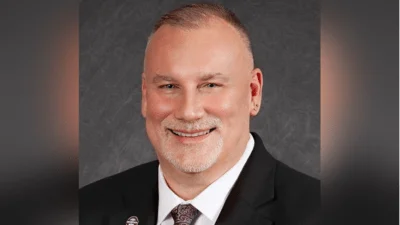Dr. James D. Anderson, Board Member | University of Illinois Urbana-Champaign
Dr. James D. Anderson, Board Member | University of Illinois Urbana-Champaign
Illinois State Board of Education Professional Educator Licensure Review Committee met July 18.
Here are the minutes provided by the committee:
I.Call to Order and Roll Call
Julia Strehlow called the meeting to order at 9:04 a.m.
| Kristine Argue-Mason | Present |
| Robert Bardwell | Absent |
| Lisa Betz | Present |
| Amy Blomberg | Absent |
| Lynn Burdick | Present |
| Dr. Catherine Corr | Absent |
| Martin Da Costa | Absent |
| Dr. Tresa Dunbar | Present later in meeting |
| Janice Griffin | Present |
| Jessica Handy | Present later in meeting |
| Mandy Horn | Absent |
| Dr. Eric Junco | Absent |
| Dr. Tiffany Nelson | Absent |
| Cynthia Riseman-Lund | Present |
| Dr. Mashana Smith | Present |
| Julia Strehlow | Present |
| Stephanie Suerth | Absent |
| Dr. Cynthia Treadwell | Absent |
| Kelly Vrablic | Present later in meeting |
| Vince Walsh-Rock | Absent |
Others in attendance included:
Meagan Budke (ISBE)
Andrea Schafer (ISBE)
Delaney Workman (ISBE)
II.Norms
Ms. Strehlow went over the agenda and reviewed the norms of the committee meetings. She noted that there will be three meeting minutes to approve at the next meeting on Aug. 23, 2024.
III.Approval of Minutes from May 24
Quorum was not met; voting postponed.
IV.Review Recommendations Language
Recommendation No. 1 -- Ms. Strehlow went over the first recommendation: How to change the Illinois licensure process. Part 24 of Administrative Rules: Standards for All Educators is part of what governs the preparation of new educators. The Professional Educator Licensure Review Committee (PELRC) determined that current standards impacting new educators need further investigation to see if the standards align to demonstrating proficiency in the six focus issues of Public Act 103-0413:
• Adverse childhood experiences
• Trauma
• Secondary traumatic stress
• Creating trauma-responsive learning environments or communities
• Restorative justice
• Restorative practices
The State Educator Preparation and Licensure Board (SEPLB) oversees these standards. ISBE should recommend that SEPLB review both the Illinois Professional Educator Standards and the Culturally Responsive Teaching and Leading Standards from Part 24 in 2025 to determine how current standards align to the requirements listed in the Public Act and consider if additional standards are needed to encompass all requirements of the law.
Ms. Strehlow mentioned that some might be wondering why the PELRC didn’t do the standards alignment in this group. She stated that the PELRC members felt they didn’t have a lot of time to do standards alignment. There was concern that the process would feel rushed. It was determined that part of this recommendation should be bringing in SEPLB and allowing more time as it should be an intentional and careful process.
Ms. Strehlow said that if additional standards are determined to be needed by SEPLB, this could be done by adopting an already existing set of national standards related to the six focus areas, if one is identified. She explained that she doesn’t believe anyone has identified national standards for preparing educators in the six focus areas. If a national set of standards is identified or there’s one released, it would be acceptable to update the existing set of standards or create a new one. This would be done in consultation with stakeholders when reviewing Part 24. SEPLB should recommend stakeholders and subject matter experts in trauma and restorative justice to assist with future standards development.
Ms. Strehlow then discussed how the PELRC has adopted some language for guardrails. It is essential for ISBE and SEPLB to collaborate with trauma and restorative justice content area experts and institutions of higher education in this endeavor to review standards.
Lynn Burdick, in the chat, stated that Ms. Strehlow did an excellent job framing this recommendation. The clear call for experts, along with the “vague” element so there can be adaptation to rapid changes in the field, works well.
Dr. Mashana Smith, also in the chat, totally agreed saying the recommendation is on point, clear, and succinct.
Ms. Burdick mentioned including in the report that the committee had spoken with preparation programs across Illinois. She said she thinks there would be value in recommending that there be a voice from this initial committee included in future work. Ms. Strehlow PELRC noted that ISBE is always interested in expanding who it hears from across the state.
Ms. Strehlow moved on to Recommendation No. 2. The PELRC determined that two existing mandated trainings include information about trauma and trauma responsive learning environments or communities. Recent efforts by K-12 education stakeholders have resulted in changes to statute regarding mandated trainings and their relation to the Professional Educator License (PEL) renewal process. PELRC discussions have revealed that the field may be confused regarding whether these existing mandates can count toward professional development hours needed for the renewal process. Cynthia Riseman-Lund shared a little bit about the legislative intent of those mandated trainings being counted toward PD hours. Ms. Strehlow indicated that emails could be sent to educators through their Educator Licensure Information System accounts regarding using the mandated trainings as PD.
Ms. Strehlow then moved on to Recommendation No. 3, which is developing training standards. Current mandated trainings about trauma do not include any standards regarding what content the trainings should cover. Content experts and stakeholders should work across disciplines statewide to collaborate to develop or modify standards for existing mandated trainings on the topic of trauma. ISBE does not develop or monitor training standards for required trainings so the committee is trying to loop in the desire to impact educator preparation standards and renewal standards from trainings.
Ms. Strehlow mentioned how to weave this into what was coming up regarding trauma and restorative justice. She wondered if there was something that could be added about entities that oversee trainings. Dr. Mashana Smith suggested recommending content experts like the Illinois Childhood Trauma Coalition. Ms. Riseman-Lund questioned what it means that content experts and stakeholders should work across disciplines statewide to collaborate, develop, or modify standards. She asked if that meant reflecting back to the SEPLB work. Ms. Strehlow said the committee is not reflecting back to SEPLB because SEPLB didn’t oversee mandated trainings, what they look like, or how they’re enacted. Ms. Strehlow said that Ms. Riseman-Lund brought up a good point and asked if anyone might have any suggestions. Ms. Riseman-Lund said she just wanted to clarify whether there was an intention of what group would be doing the work.
Before moving on to Recommendation No. 4, Ms. Strehlow asked if anyone had any questions. Jessica Handy said she knew that ISBE received money in the budget this year to create a Children’s Adversity Index. She stated she is on the Professional Review Panel. Ms. Handy went on to say that there will be a lot of discussions around adding some sort of trauma-related cost factor as an element of the funding formula. She added this is another place where this conversation is happening and will occur sooner than the reconvening of the Whole Child Task Force. Ms. Strehlow explained for those who might not know that the same Public Act that created the committee charge also required development of a Children’s Adversity Index. ISBE hopes to include some indicators of resilience and protective factors in the index.
Ms. Strehlow moved on to Recommendation No. 4, which is definitions for restorative justice and restorative practices. Restorative justice and restorative practices aren’t universally defined in the School Code. PELRC recommends that ISBE consider adding these definitions to the guidance it is required to publish no later than July 1, 2025, pursuant to Senate Bill 1400. Ms. Kristine Argue-Mason offered to help flesh out some of the writing about the rationale
under this recommendation. Dr. Smith said she thought it was an excellent recommendation.
V.Review Plan for Committee Members Submitting Narrative for Report Ms. Strehlow went over the structure of the report. She stated that all feedback about the recommendations and any contributions to the writing of the rationale for the recommendations must be turned into ISBE by Friday, Aug. 2, 2024. Dr. Smith offered to help with the rationale for Recommendation No. 3.
VI.Review Timeline of Final Steps Before Submission
Ms. Strehlow went over the timeline and final steps before the report is submitted.
VII.Reminder of Upcoming Meetings
a. 9-11 a.m. on Friday, Aug. 23, 2024 (Forum is needed to conduct vote!)
b. 9-11 a.m. on Friday, Sept. 27, 2024
VIII.Public Comment
Ms. Strehlow asked if anyone was in person or online who wanted to offer public comment. There was no public comment.
IX.Next Steps
Writing the report will be the next step.
X.Adjourn
Ms. Riseman-Lund motioned we adjourn the meeting and Dr. Smith seconded.
| Kristine Argue-Mason | Yes |
| Robert Bardwell | Absent |
| Lisa Betz | Absent |
| Amy Blomberg | Absent |
| Lynn Burdick | Yes |
| Dr. Catherine Corr | Absent |
| Martin Da Costa | Absent |
| Dr. Tresa Dunbar | Absent |
| Janice Griffin | Yes |
| Jessica Handy | Yes |
| Mandy Horn | Absent |
| Dr. Eric Junco | Absent |
| Dr. Tiffany Nelson | Absent |
| Cynthia Riseman-Lund | Yes |
| Dr. Mashana Smith | Yes |
| Julia Strehlow | Yes |
| Stephanie Suerth | Absent |
| Dr. Cynthia Treadwell | Absent |
| Kelly Vrablic | Yes |
| Vince Walsh-Rock | Absent |
https://www.isbe.net/Documents_PELRC/071824-Minutes.pdf






 Alerts Sign-up
Alerts Sign-up